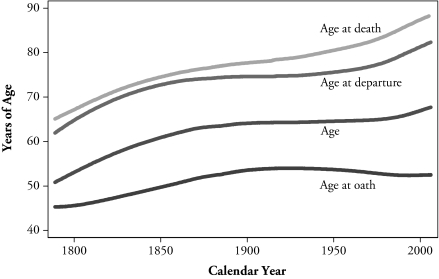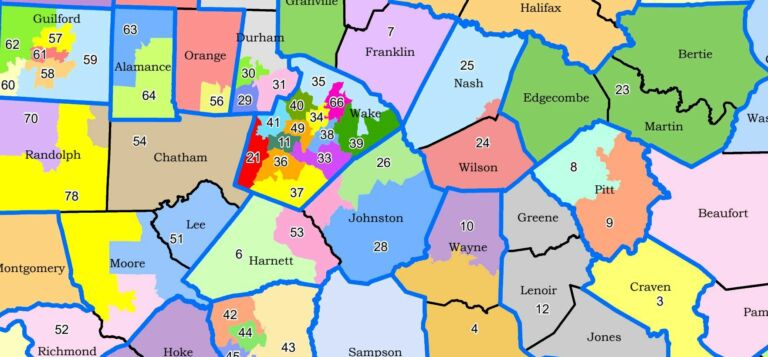A bill in the General Assembly would allow some judges who reach the state mandatory retirement age to complete their terms, limiting the disruption of their retirements.
North Carolina Judges Are Forced to Retire at 72
North Carolina law (GS 7A-4.20.) requires sitting judges to retire by the end of the month of their 72nd birthday:
No justice or judge of the General Court of Justice may continue in office beyond the last day of the month in which he attains his seventy-second birthday
While the law allows older judges to be “recalled for periods of temporary service,” it imposes a death knell for judges’ regular service.
It also disrupts the courts when judges must step down during court sessions. The only way for judges to avoid that problem is for them not to seek reelection if their 72nd birthday comes during their next term.
A Bill Would Mitigate the Disruption of Mandatory Judicial Retirement
House Bill 268, “Modify Age Limits of Judges.,” sponsored by representatives Jeffrey Elmore (R – Alexander, Wilkes), Joe John (D – Wake), Jimmy Dixon (R – Duplin, Wayne), and Sarah Stevens (R – Surry, Wilkes), would change that.
The bill’s language still sets seventy-two as the age that triggers retirement, but it allows judges to complete their terms of office if less than two years are remaining in that term:
Notwithstanding any provision of this section to the contrary and not to be construed as affecting the age limit for magistrates under G.S. 7A-170(b), if a judge of the District Court Division of the General Court of Justice turns 72 years of age with less than two years remaining on the judge’s term of office, the judge may continue in office until the end of the judge’s term of office.
That would end the practice of forcing some judges to leave office in the middle of a term, preventing the disruption in judicial services that such midterm departures may cause.

Chart showing that the current age of departure of justices from the U.S. Supreme Court is around 80. Source: National Library of Medicine
It is also a nod to the voters who elected judges to those terms in office. If voters wish to put older judges into office, they should be able to expect those judges to complete their terms. The average age when justices leave the United States Supreme Court is nearly eighty years. In such an era, forcing elected judges out of office as soon as they turn seventy-two makes little sense.


